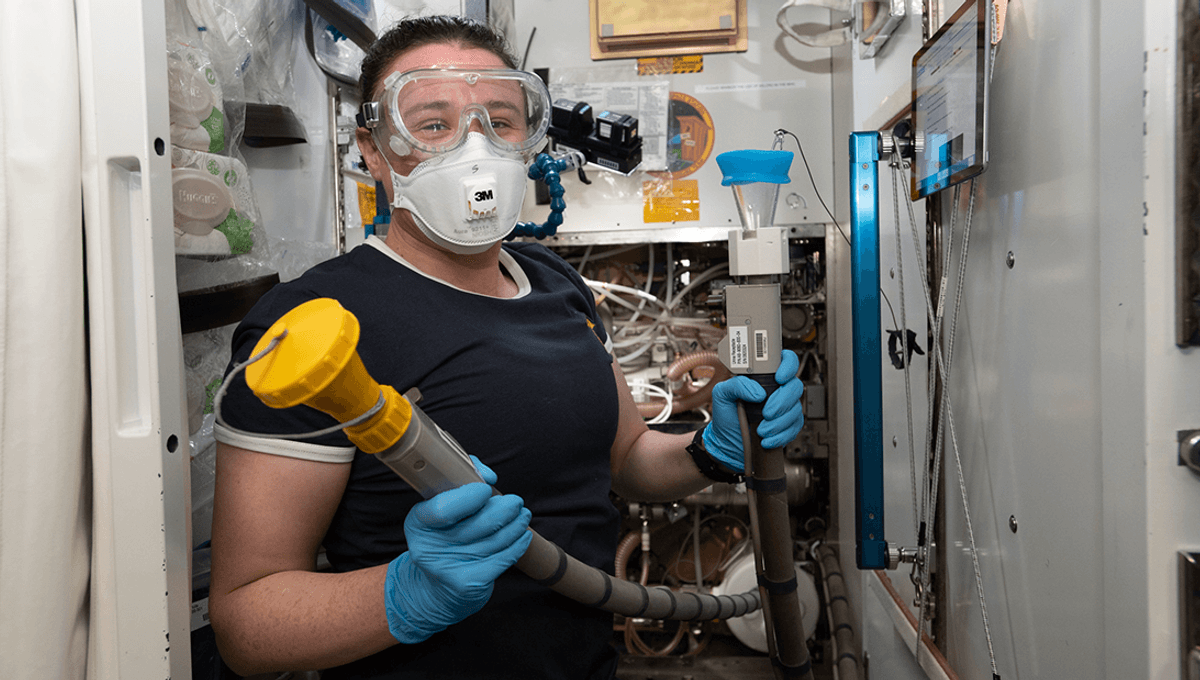
Astronaut training is pretty rigorous, involving trips to neutral buoyancy labs to simulate to simulate microgravity environments, and learning how to operate and maintain space station modules. But, according to former NASA astronaut José Moreno Hernández, there is another, less talked about training session: the pee and poop module – and it comes with its own fairly disgusting exam.
During the early days of the Apollo missions, NASA didn’t think about peeing and pooping too much. When the first American man went into space, they made no plans at all for if he needed the bathroom. The trip was only supposed to be short, so they figured he’d be able to hold it. However, due to delays prior to launch, he ended up having to wait on the launchpad for hours and ended up having to pee himself.
For longer space trips, NASA had to figure out a better system. Before Apollo 12, the main way astronauts went to the toilet was into collection bags. For peeing, this involved inserting your penis into a tube with a rubber, condom-like end. This had its own problems in that the sheaths would often fly off in space, largely due to a sizing problem.
For pooping, astronauts would take a fecal bag and use a “finger cot” to position it over the anus.
For excursions outside of the spacecraft, astronauts would have to use the fecal containment system (FCS), which is a “pair of underpants of absorbent material worn under the liquid cooling garment.” This is a fancy way of saying that when man first walked on the Moon he was wearing a diaper.
Thankfully, the toilet situation has moved on somewhat since the early days – at least inside spacecraft – not least because they had to adapt to accommodate female astronauts, for whom a sheath would be somewhat impractical. Now they have an advanced bathroom facility on the ISS. The latest space toilet technology costs a whopping $23 million, in fact.
The problem is that in the microgravity environment on the ISS, liquids and solids tend to float where they are without another external force acting upon them. This is a particularly annoying problem when those solids are poop and pee. Gravity on Earth directs pee and poo into the toilet, where it rests until we send it on its final journey. In space, that doesn’t happen, so pee and poo need to be guided by air flow.
In short, you get a vacuum hose for your pee – but for your poop, you only have a small area to aim into, as creating a normal-sized toilet opening would require too-large of a motor in order to power the airflow. Commander Chris Cassidy explains in the below video how the systems work.
“You better have good aim,” astronaut José Moreno Hernández told Metro of the toilets. They take some getting used to, with the astronauts required to practice before they go to space.
“And I kid you not, there’s a class – we take potty 101,” Hernández added. “You take a class on going to the restroom and they won’t check you off until you can do a number one and number two.”
To get to the ISS, there are many requirements. But all must pass the poop test.
Source Link: NASA Astronaut Reveals You Have To Pass The Pee And Poop Test If You Want To Go To Space